Part 28: Crusader Kings: Chapter 28 - Of Beginnings and Ends: 1347 - 1360
1347 - 1360: Of Beginnings and Ends
Francisco's first task as King of Germany is to clean up the considerable mess left behind by his predecessor, beginning with distributing the many titles he greedily kept to himself. The restoration of so many Duchies does much to placate his vassals.

He then turns his attention to the job of the bringing wayward vassals back in under his banner. This proves to be a long and ardous task, for the list of Counts and Dukes that have declared indepence is considerable. Some are brought in with force, others with threats, yet others with promises.

After twelve years of campaigning, by 1350 all of Germany and most of Burgundy owes fealty to Francisco. Somewhere along the way, the old, trusting and cowardly Francisco was left behind.
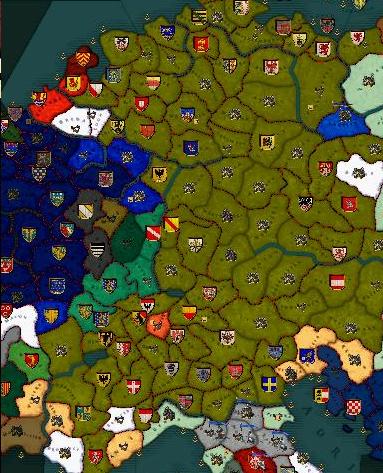
The new Francisco is certainly not without faults - women being chief among them - but he is also a generous and mild-tempered man who nonetheless is ready to apply force when necessary.
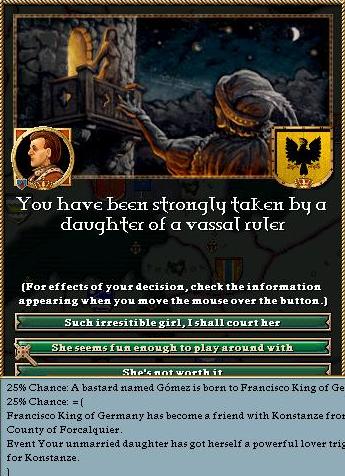
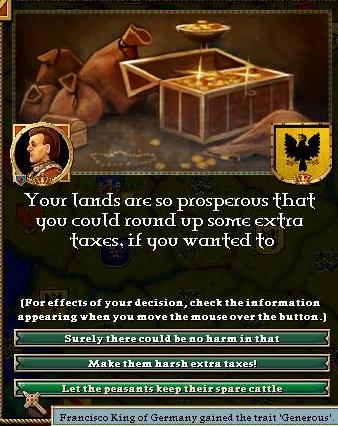
He has developed genuine friendships with a number of his more influential vassals, and in 1352, he even manages to befriend the independent Duke of Holland and begin negotiations for returning Holland to the Holy Roman Empire. One year later, the Duke of Holland, whose Duchy has been independent for over two centuries, swears fealty to Francisco.
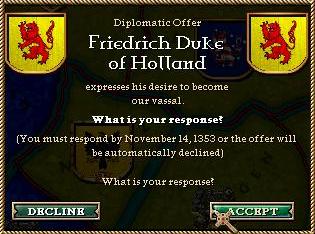
Not everyone gets along with the German King, however. He has developed a bitter rivalry with the King of Bohemia-Hungary over a number of contested provinces in Italy, which were made Bohemian possessions some seventy years ago. In August of 1353, the King of Bohemia ups the ante by laying claim to the title of King of Italy. Francisco responds by claiming the title of Bohemia by right of controlling over two-thirds of its ancestral land, and war is declared.
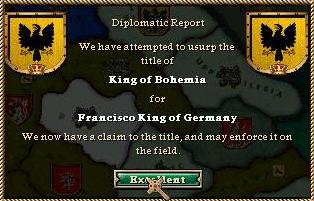
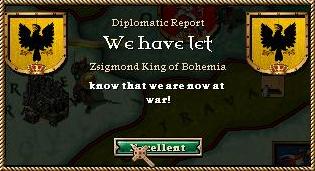
A familiar scene repeats itself as German troops overwhelm the defenders of North Bohemia. Bohemia's italian provinces are also taken without much of a fight.
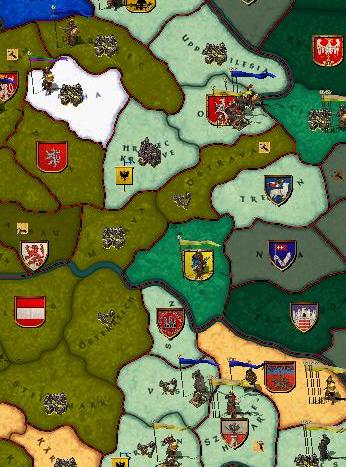

South Bohemia proves more resilient, its defending force of 40,000 men succesfully repelling several German armies.

Eventually, however, numbers tell, as the defenders are worn down by wave after wave of German attackers. The last of the Bohemian demesne is captured, and Zsigmond is forced to agree to a humilating peace, not only surrendering his Bohemian crown but also all of his provinces and claims in Italy. The Kingdom of Bohemia is no more, and Hungary reappears on the map.


Though undeniably successful in war, Francisco proves less able at handling his wife, who has taken to openly badmouthing her husband.
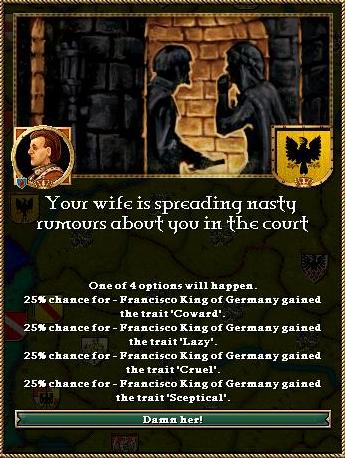
News reach Germany in 1358 of a horrifying plague that is sweeping across Asia, devastating the populations of the Khanate, Egypt, Edessa and Jerusalem. The plague has even reached Constantinople, and it is believed that over a hundred thousand people have perished in that great city alone. Those afflicted with the disease are afflicted with horrible buboes believed by many Muslim and Orthodox priests to be a mark of sin and a punishment sent by God, though Pope Urban V has assured the Catholics of Europe that God will surely spare those faithful to the Mother Church.
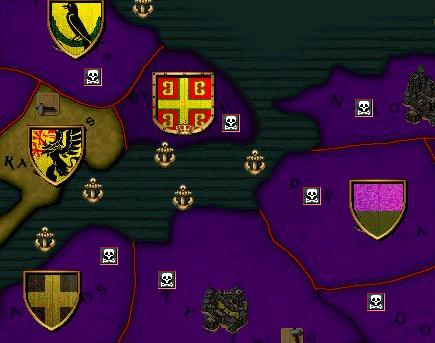
Leopold the Leper passes away the following year, having lived to what is for a leper astonishingly old age of 58. Francisco's hated wife also falls ill and dies, and he remarries to a younger woman with significant diplomatic talent.
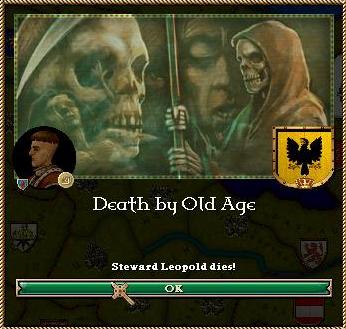
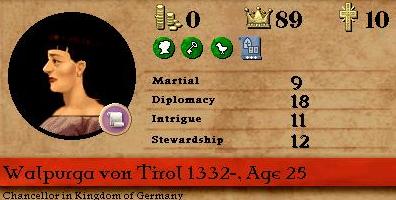
Despite prayers, repentance and the proclamations of Urban V, there seems to be no stopping the plague as it spreads all across Bulgaria and Hungary. Then, on a bright spring day of 1260, the first buboes appear on a merchant travelling through Ulm. The Great Mortality has come to Swabia.
